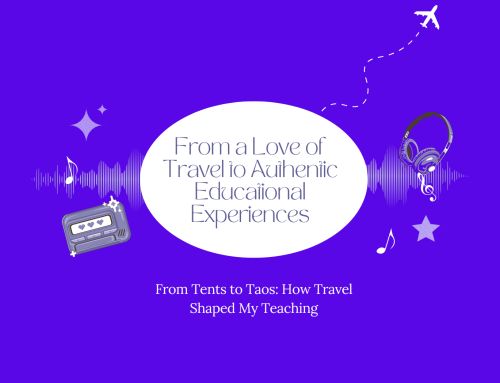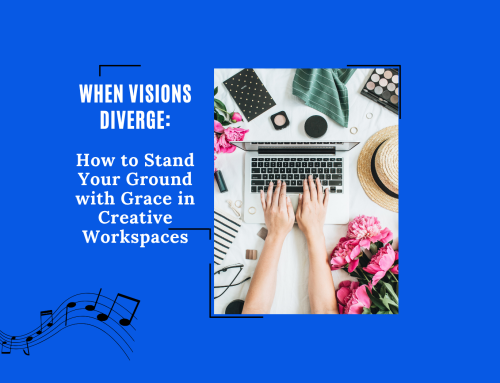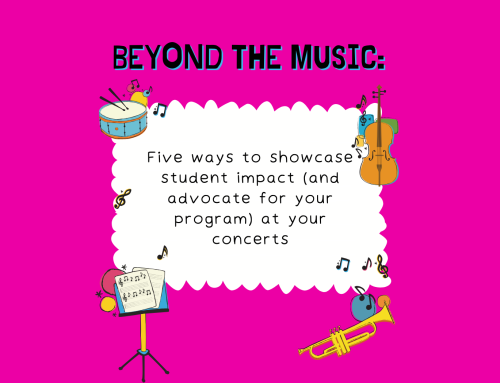The other day, I was talking to my students about creativity. I find it interesting that many of them think that musical creativity is synonymous with the ability to play an instrument. “No!” I said. “If you asked me to create on the trumpet, I might struggle because I don’t play the trumpet well. I won’t be able to execute the ideas in my head.” But, I explained, that doesn’t mean I’m not a creative musician. It means I need another vehicle or I need others to execute my ideas.
This led me to tell a story from when I was in high school. Once of my mentors, Christopher Smith, was a jack-of-all-trades kind of guy. He was a self-taught singer-songwriter, playing the guitar and a bit of piano. Everything he played, he played by ear. He didn’t have depth of theoretical knowledge, but he knew how to write songs and how to translate those songs into vast orchestrations via a synthesizer and recording software.
When I was 13, Chris convinced me to buy my own synth and to write my own songs. I still remember the first song I wrote. It was in the key of A minor and had a repetitive, open piano accompaniment with a dramatic, soaring melody line. I can still sit down and play that song. I played it for Chris. He encouraged me to orchestrate it using my synth. I did. We recorded it together and it became the soundtrack for my middle school play.
I can remember sitting in his living room, plunking out ideas on his keyboard, and trying to imagine what kind of song would work for his musical.
Fast forward to high school — I was still playing keyboard, writing songs, and studying music seriously. I knew I would go to college for music. One minute I was perfecting a Beethoven Sonata and the next I was writing lyrics for a song I’d perform at an open mic later in the week. Chris was also still writing songs. Specifically, Chris was writing songs for a musical he had conceived based on the true story behind the song, Amazing Grace.
“Can you write some songs for my musical?” Chris asked me. Being full of ideas and unafraid to share, I agreed. Since Chris couldn’t play the piano very well, he would set up a video camera and record my movements so he could extract ideas and melody lines and take what he wanted to use. I can remember sitting in his living room, plunking out ideas on his keyboard, and trying to imagine what kind of song would work for his musical.
How does someone write, arrange and orchestrate a musical when they can’t read music?
I posed this question to my orchestra class. Is it possible to be a creative musician and to not read music? Are you even considered a “musician” if you don’t know how to translate your ideas to notes on a page? (Of course, I know how I would answer these questions!)
In 2015, I got an email from someone who worked on Amazing Grace the Musical. She wanted to let me know that the show would be opening on Broadway that summer. How would I like to have my name written in the playbill?
Broadway. Playbill. My name.
I went to New York on a school trip that June and passed by the Nederlander Theater. I saw Amazing Grace the Musical in lights. That fall, I sat in the theater with my best friend and watched this story unfold. The ideas and melodies and drama that spun out of Chris Smith’s living room were now in front of me as a full-scale broadway production. And, I heard my melody — the one I wrote when I was 16 — being sung to me by a Broadway performer.
My point in telling this story to my students? Music is powerful and creating music isn’t limited to the musical elite. You don’t need a PhD to write a song. Songwriting and creating music is essential to music itself, to the expression of our humanity through sound and song.
If an ex-cop turned youth pastor turn librettist and a 16-yr-old pianist can have their music on Broadway, you can too.
To read more about Chris Smith and his musical, check out this link→
Here is a recording of the song Chris and Sarah co-wrote:




Leave A Comment